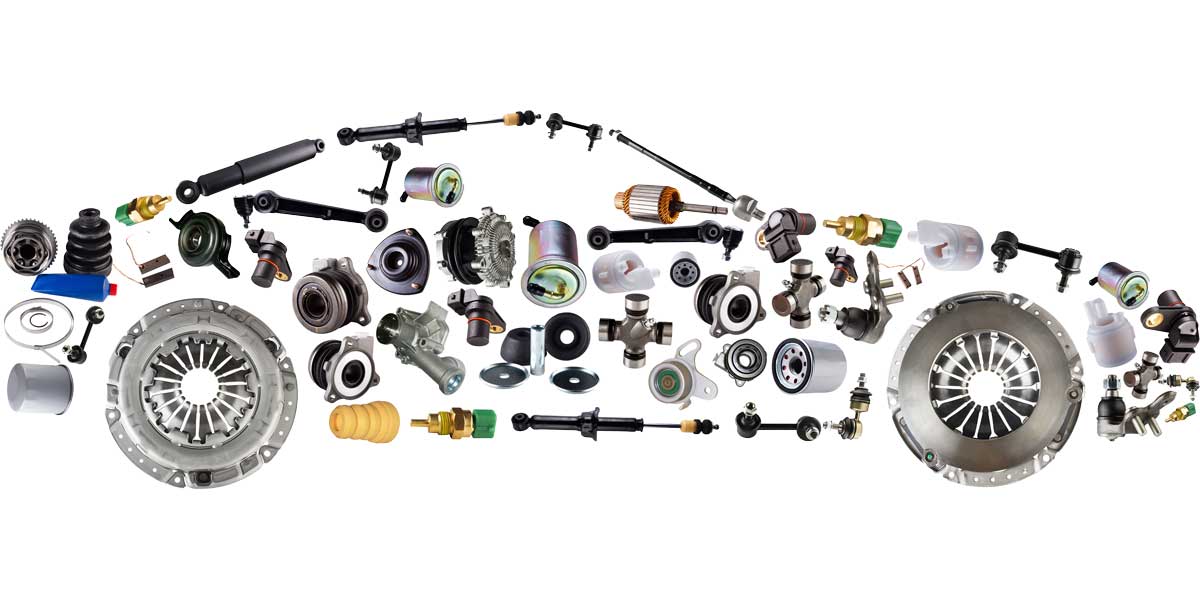From Parts to Whole Vehicles: How WooCommerce is Fueling the Automotive E-Commerce Revolution
Introduction
The automotive industry has seen a massive shift in recent years, steering toward the digital world. This shift has brought forth the emergence of automotive e-commerce, a booming sector that enables businesses and consumers to buy and sell vehicles, parts, and related services online.
One name that resonates deeply within this online marketplace is WooCommerce. Renowned for its versatility and ease of use, WooCommerce has become a go-to platform for those in the automotive industry looking to establish or grow their online presence. WooCommerce has proven to be an integral part of the automotive e-commerce ecosystem, from small retailers selling aftermarket parts to large manufacturers managing complex catalogs.
In this article, we’ll take a deep dive into automotive e-commerce, exploring various facets such as market size, business models, and platform selection. We’ll emphasize WooCommerce, evaluating its suitability for automotive businesses and comparing it with other popular platforms. Our goal is to provide an objective and comprehensive guide that instills confidence in those seeking to make informed decisions in this rapidly evolving industry.
Whether you’re an established player in the automotive world or just starting your online journey, this article aims to equip you with valuable insights, strategies, and practical knowledge.
Understanding Automotive E-commerce

The realm of automotive e-commerce is vast and complex, encompassing everything from buying a brand-new car online to sourcing a rare part for a vintage model. In this section, we will explore the definition and scope of automotive e-commerce, understand its market size, and delve into the primary business models.
Definition and Scope of Automotive E-commerce
Automotive e-commerce refers to the buying and selling of vehicles, parts, accessories, and related services through online platforms. It leverages digital technologies to facilitate transactions, streamline operations, and enhance customer experiences. From manufacturers to dealers to individual consumers, automotive e-commerce has redefined how the industry conducts business, offering convenience, accessibility, and expanded market reach.
How Big is the Automotive E-commerce Market?
The automotive e-commerce market has been on a consistent growth trajectory. As technology advances and consumer preferences shift towards online shopping, the market continues to expand. The integration of augmented reality, artificial intelligence, and other innovations has further fueled this growth. From online showrooms to virtual test drives, the boundaries of what’s possible in automotive e-commerce are continually being pushed. Industry reports project the global market size to reach significant numbers in the coming years, making it a prime focus for both existing players and new entrants.
Exploration of Automotive Business Models (B2B and B2C)
The automotive e-commerce space operates in both B2B (Business-to-Business) and B2C (Business-to-Consumer) models:
- B2B: This involves business transactions, such as manufacturers selling parts to distributors. Platforms like WooCommerce are often utilized in the B2B realm, offering tailored solutions that meet specific business needs. For those seeking expertise in this area, the WooCommerce development experts at Zen Agency™ provide seamless integration and automation of sales processes.
- B2C: This focuses on direct sales to consumers, encompassing everything from new car sales to aftermarket accessories. B2C automotive e-commerce often requires a different approach, focusing on user experience, convenience, and trust.
Both B2B and B2C models demand flexibility and adaptability in e-commerce solutions, and WooCommerce has proven to be a robust choice for many automotive businesses.
Selecting the Best Platform for Automotive E-commerce
When venturing into the automotive e-commerce industry, choosing the right platform is pivotal. It can shape your online store’s functionality, user experience, and overall success. This section will evaluate WooCommerce, mainly focusing on auto parts e-commerce, and compare it with other platforms to comprehensively understand the available options.
Evaluation of WooCommerce for Auto Parts E-commerce
WooCommerce’s widespread popularity in the automotive sector, particularly for auto parts e-commerce, stems from its blend of functionality, flexibility, and scalability. Here’s why it’s a favored choice:
- Tailored Solutions: WooCommerce can be customized to suit the specific requirements of auto parts businesses. It accommodates various catalog structures and uniquely presents parts and accessories.
- Integration with Dropshipping: Through WooCommerce, businesses can unlock the power of dropshipping for automotive parts, expanding offerings without needing large inventory stocks.
- SEO Advantage: With in-built SEO features and additional plugins, WooCommerce helps boost online stores’ search rankings, driving traffic and sales.
- Robust Security: Regular updates and compliance with industry standards ensure secure transactions and build customer trust.
- Cost-Effective: WooCommerce provides a powerful, free solution that can be further optimized with paid extensions.
WooCommerce’s versatility and specialized features for auto parts sales make it a robust and appealing choice for many businesses in this niche.
Comparison with Other Platforms
Selecting a platform goes beyond just evaluating WooCommerce; it requires a broad understanding of the competitive landscape. Here’s how WooCommerce stacks up against other popular platforms:
- WooCommerce vs. Shopify: Both platforms are strong contenders in the e-commerce space, but their differences lie in customization, pricing, and ownership. While Shopify offers easy setup, WooCommerce allows more in-depth customization, better aligning with unique automotive needs.
- WooCommerce vs. Magento: Magento might offer advanced features, but it often demands higher technical expertise and investment. WooCommerce provides a more user-friendly and budget-friendly solution for small to medium-sized automotive businesses.
- WooCommerce vs. BigCommerce: BigCommerce offers robust features, but WooCommerce’s open-source nature allows for more flexible customization, which is essential for specialized automotive e-commerce stores.
- Utilizing WordPress for E-commerce: WooCommerce, being a WordPress plugin, benefits from the extensive community, themes, and plugins of WordPress, allowing seamless integration and continuity in design and functionality.
Choosing the right platform for automotive e-commerce, especially when dealing with auto parts, requires a thoughtful evaluation of needs, goals, and budget. WooCommerce emerges as a versatile and robust choice, offering specialized solutions for automotive businesses. Its comparison with other platforms highlights the need to consider various factors, from customization and scalability to costs and technical requirements.
Understanding the nuances of these platforms and how they align with specific business needs is vital in making an informed decision. With expert guidance from a WooCommerce development agency, businesses can further harness the platform’s potential and build a successful online store that stands out in the competitive automotive e-commerce landscape.

In-depth Analysis of WooCommerce
WooCommerce has become a leading choice for e-commerce, but what sets it apart? An in-depth analysis can answer common questions and misconceptions about this powerful platform, particularly within the automotive industry.
Is WooCommerce the Best eCommerce Platform?
WooCommerce offers unparalleled flexibility, customization, and integration capabilities, making it a top choice for many businesses. Its ability to cater to the unique needs of the automotive sector reinforces its standing. Learn more about using WooCommerce for automotive parts businesses.
Can WooCommerce Handle 100,000 Products?
WooCommerce is designed to scale with a business’s growth and can efficiently handle extensive product catalogs, including 100,000 products or more. A critical aspect that allows for this scalability is the integration of powerful search and discovery engines like Algolia.
Algolia enhances the WooCommerce platform by providing fast and accurate search functionalities. Its indexing capabilities ensure that even vast catalogs are easily searchable, offering a seamless user experience. This optimization not only allows for smooth navigation but also enhances the site’s overall performance, even when handling large numbers of products.
The integration of Algolia with WooCommerce provides an optimal solution for businesses that require handling large-scale catalogs without compromising speed or functionality. By employing Algolia’s search and discovery tools, WooCommerce becomes a robust platform capable of meeting the demands of even the most extensive e-commerce sites. Learn more about revolutionizing your WooCommerce store with Algolia search and discovery.
What Big Brands Use WooCommerce?
WooCommerce is favored by many businesses, from budding startups to globally recognized brands. This diverse clientele illustrates WooCommerce’s scalability and adaptability to varying business needs. WooCommerce’s client list includes Singer Sewing Machines, Weber Grills, and All Blacks (New Zealand’s official rugby team), showcasing the platform’s versatility and broad appeal. Automotive businesses can take confidence in the fact that such prominent brands entrust their e-commerce operations to WooCommerce.
Is WooCommerce Still Relevant?
In an ever-evolving e-commerce landscape, staying relevant is critical. WooCommerce, with its continuous updates, robust community support, and alignment with contemporary e-commerce trends, maintains its relevance and competitiveness. With over 5 million active installations and powering over 28% of all online stores as of 2023, WooCommerce continues to be a leading choice for businesses globally.
What is WooCommerce Best For?
WooCommerce shines when it comes to providing customizable e-commerce solutions. It’s renowned for its adaptability, making it possible to tailor storefronts to meet specific business requirements. WooCommerce is particularly effective for businesses seeking to customize their e-commerce presence extensively, from unique product displays to specialized checkout processes, making it an excellent fit for automotive e-commerce businesses with specific needs.
What Percentage Does WooCommerce Take?
One of the significant advantages of WooCommerce is that, unlike many e-commerce platforms, it doesn’t take a percentage of a business’s sales. This allows businesses to maximize their profit margins. While payment gateway fees may apply, these depend on the chosen payment processor, not WooCommerce. This model makes WooCommerce an affordable choice for businesses of all sizes.
How Many Products Are Too Many for WooCommerce?
WooCommerce’s scalability ensures that it can handle large product catalogs effectively. While there’s no strict upper limit on the number of products, the performance can be influenced by web hosting, website optimization, and configuration. It’s essential to ensure that your hosting solution can support the size of your product catalog and the volume of your traffic and that your site is well-optimized for speed and performance. With the proper setup, WooCommerce can handle extensive catalogs efficiently.
How Many Products Can You Sell on WooCommerce for Free?
WooCommerce is a free plugin, meaning it does not limit the number of products you can sell. However, the cost can arise from elements such as web hosting, the purchase of premium themes or plugins, and any additional services or features you choose to implement. Thus, while WooCommerce’s core functionalities are free, it’s essential to consider these potential additional costs when planning an e-commerce store.
Does WooCommerce Take a Cut of Sales?
WooCommerce does not take a cut of sales. Any costs associated with selling on the platform would typically come from payment processing fees or additional extensions and services.
Can WooCommerce Handle High Volume?
WooCommerce’s scalability goes beyond product catalogs and extends to handling high volumes of traffic and transactions. By integrating High-Performance Object Storage (HPOS) and other optimization techniques, WooCommerce can manage substantial customer activity and sales without a hitch. This capacity makes it a robust platform for automotive businesses anticipating significant online traffic, whether from product searches, sales events, or regular day-to-day operations. Learn more about how HPOS can empower WooCommerce to handle high volumes.
Automotive E-commerce Business Considerations
What is Another Website Like RockAuto?
RockAuto is a popular platform for auto parts, but several alternatives exist in the market. Sites like AutoZone, Advance Auto Parts, and NAPA Auto Parts offer similar services. For businesses considering this market, platforms like WooCommerce provide the necessary tools to create a competitive online auto parts store.
Is Dropshipping Auto Parts a Good Idea?
Dropshipping can be an appealing business model for auto parts sellers, as it allows them to offer various products without holding inventory. It can be profitable, especially when integrated with robust e-commerce platforms like WooCommerce. Unlocking the power of WooCommerce dropshipping for automotive parts can lead to a successful online business.
Is Selling Car Parts Online Profitable?
Selling car parts online can indeed be profitable, especially with the growing trend of online shopping for automotive needs. Platforms like WooCommerce can provide a cost-effective way to start and grow a business. The success will depend on market demand, pricing strategy, marketing, and website efficiency.
What are the 3 Types of E-commerce?
The three primary types of e-commerce are B2B (Business to Business), B2C (Business to Consumer), and C2C (Consumer to Consumer). Understanding these models is vital for choosing the right strategy for an automotive e-commerce business, and WooCommerce’s flexibility allows adaptation to various e-commerce models.
What is the Largest Online Automotive Marketplace?
Some of the largest online automotive marketplaces include eBay Motors, AutoTrader, and Amazon Automotive. However, with the right strategies, even smaller automotive e-commerce businesses can thrive. Platforms like WooCommerce enable sellers to create a competitive online store that can stand out in the automotive marketplace.
Final Thoughts
As we’ve explored, the automotive e-commerce landscape is rich with opportunity, but success in this field requires a thoughtful approach. Selecting the right platform can make all the difference, and WooCommerce’s flexibility, scalability, and robust features make it a standout choice for many automotive businesses.
From understanding the diverse e-commerce models to optimizing for large product catalogs and comparing various platforms, this article offers a comprehensive look at what it takes to thrive in automotive e-commerce. WooCommerce’s strong capabilities in handling various needs have been highlighted, showing why it’s a preferred choice for many.
For those keen to dive deeper into making the most of WooCommerce for their automotive parts business, the Ultimate Guide to Using WooCommerce for Automotive Parts Businesses is invaluable.
In the ever-changing world of automotive e-commerce, staying informed and leveraging the best tools can pave the way to success. Your journey in this exciting field may be just a click away.
Want to apply the Zen philosophy to your WooCommerce build?
Let’s schedule a call and talk about how the decades of E-commerce experience our team brings to the table can help propel your business forward with best-in-class WooCommerce development!

















